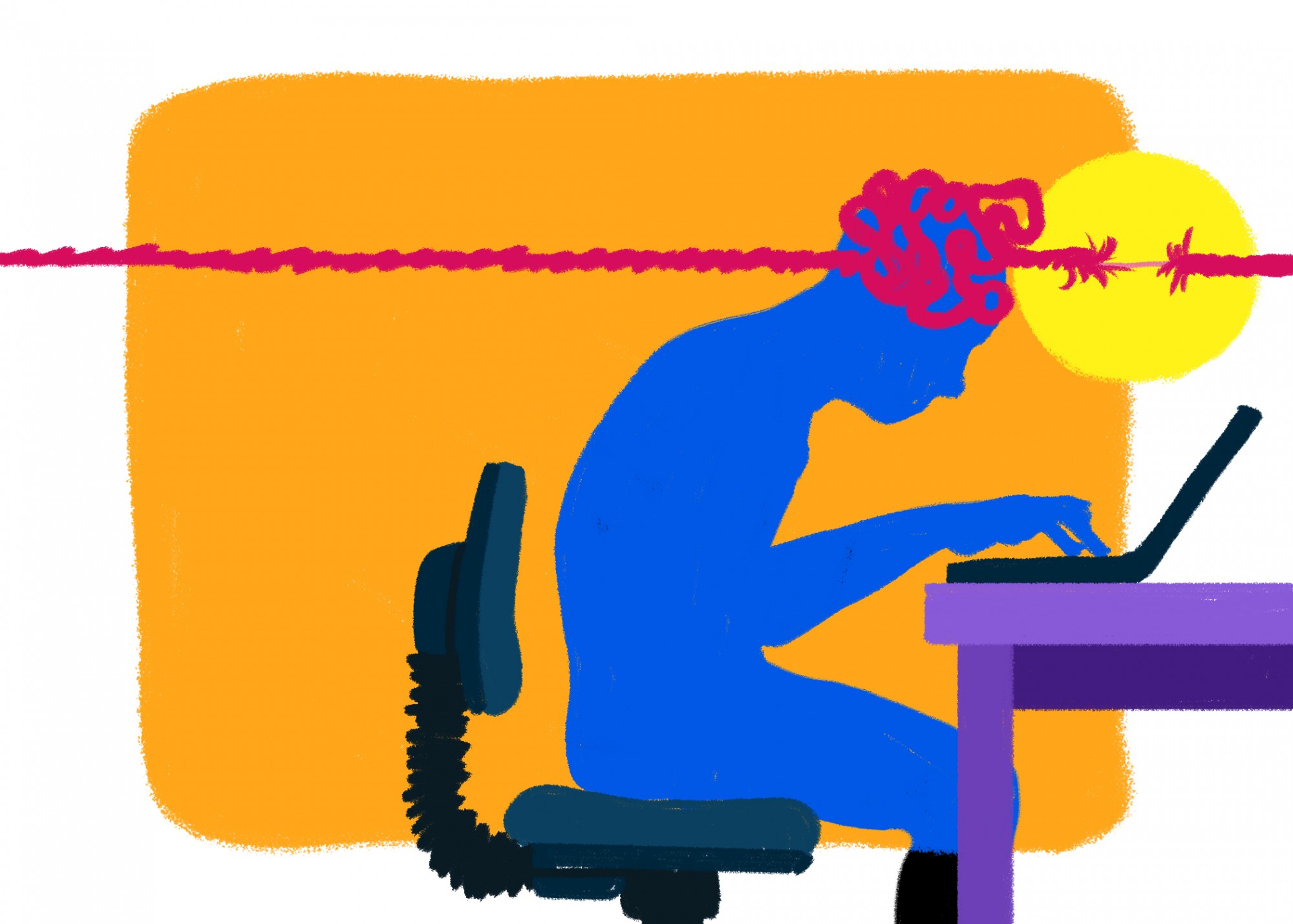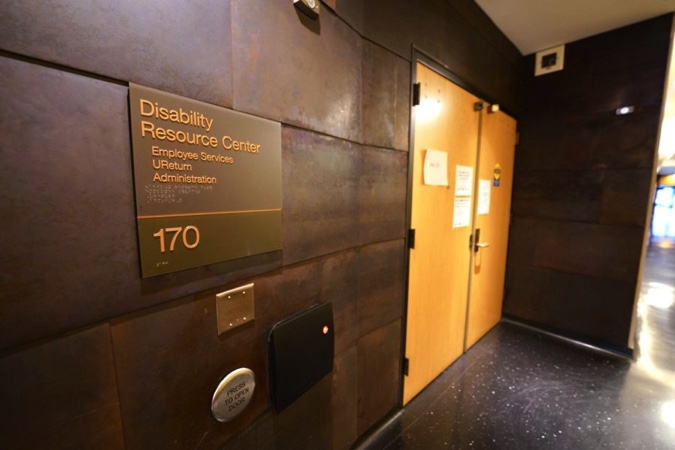Halfway through fall semester, first-year University of Minnesota student Lee Knutson received accommodations from the Disability Resource Center. Knutson, who has a history of anxiety and panic attacks, is now allowed extra time on exams and has the option to take them alone, instead of in a large classroom setting.
But when he signed on to his Zoom class for a physics test a few weeks into online instruction, all students could see each other to ensure a secure testing environment. Knutson had previously been told he would be able to take the test in private with a TA present. While he understood the confusion due to the pandemic, the new testing process felt like a violation of his accommodations, he said.
“I’m already worried about how everything’s gonna go down, but to have the additional uncertainty … of ‘Am I doing this right? Am I going to be kicked out of the test?’” he said. “It was really stressful.”
After explaining his circumstances, Knutson was allowed to keep his camera off for the remainder of the exam, though his audio was left on.
While many University students were surprised when they learned classes would be shifted entirely online for the rest of the semester, some students with disabilities faced extra concerns regarding the transitions. The University’s Disability Resource Center provides personalized accommodation letters for students with disabilities. The letters suggest alternative modes of instruction or assessments when a student may not be able to complete the original assignment.
Other students have experienced trouble with their DRC accommodations since the online transition, including recent graduate Liz Weiers.
When Weiers’ genetics class transitioned to online learning, her professor emailed students who had requested extra time accommodations on the upcoming test. But instead of addressing each student individually, he sent a mass email, revealing who in the class also had DRC accommodations.
Weiers said accommodations are generally expected to remain largely confidential between each student and their professor. According to a statement on the DRC’s website, students have the right to “appropriate confidentiality of all information regarding their disability/health condition.”
“It made me feel disrespected and kind of unsafe because my private information … was shared with a bunch of strangers who I didn’t know,” Weiers said.
Positives and negatives
Testing conditions have varied dramatically for individual students, said Matthew Croft, incoming chair of student affairs for Minnesota Student Association and Disabled Student Cultural Center board member. Many students returned to various housing situations after spring break that impacted their ability to access private and quiet testing environments, which is a DRC accommodation for some.
As of March 19, the DRC could no longer administer exams due to COVID-19, leaving students to take their exams online. The DRC declined to comment for this story.
But for some of these students, the transition to online learning has had unseen positives. Some who have testing accommodations have benefited from designing their own environments at home, particularly those who can now test in their own rooms.
For Weiers, there were several instances where testing online was actually more accommodating for her disabilities than working in person.
“When you’re taking a test online you’re obviously alone in a room, and I noticed that that was much better for me … I didn’t have to hide the fact that I was disabled because there’s no one to hide it from,” she said.
Different disabilities and their respective accommodations can present a variety of challenges. For those with attention deficit hyperactivity disorder, or ADHD, online learning can make focusing difficult. But some students are in circumstances that can make online instruction easier and more efficient, said Ondrew Tillotson, the outgoing DSCC president.
“It’s this weird push and pull: On one hand, there are a lot of people with disabilities that would rather see the screen usage totally go away, but there are others who want it to continue forever,” said Tillotson.
Students self-advocate
Among students with DRC letters, as well as disability advocates on campus, one point of focus has been the responsibility the DRC places on students to ensure their needs are met.
The DRC encourages students to be upfront about their needs at the beginning of the semester — for instance, students sending their DRC letters right away and introducing themselves to their professors, said incoming DSCC president Louie McGee.
But much of the responsibility to ensure accommodations are followed falls on the students and instructors themselves, said Benjamin Munson, professor in the department of Speech-Language-Hearing Sciences and chair of the University Senate Disabilities Issues Committee.
“There really isn’t a structure in place for monitoring and adhering to those disabilities accommodations letters other than simply the students … advocating for themselves,” said Munson. “When we pivoted to the alternative instruction with COVID, none of that changed.”
One solution to inconsistencies between instructors may be lack of training, Munson said. There has been discussion of mandatory disability training for faculty, but it was put on hold due to COVID-19, he said.
“The DRC has almost exponentially more people accessing it now than they did 10 years ago, and we are no longer in a position where the DRC can shape the experience of students with disabilities on campus,” said Munson. “We could be making bigger and more meaningful longer-term changes by putting things on instructors.”
Munson gave the example of two accommodations frequently given to students: extended time and deadlines. Instead of giving each student accommodations, minimizing rigid or timed assignments could take pressure off the DRC.
The University allowed students to change grades to pass/fail after classes ended this semester, which raised a question for Croft — why were these measures not previously allowed? If it did not impact the integrity of the University’s courses this semester, it is unclear why the standards were previously upheld as immovable, he said.
“Why [are we] willing to employ this systemwide when this was not a practice that we employed for individual students in the past? I really want us to come back as the University community and examine why and how we set the grading standards,” Croft said.













